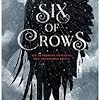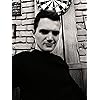To answer questions about
The Iliad,
please sign up.
Casey Newsom
a really helpful article on some of the basic differences between the translations by Pope, Lattimore, Fagles, and Mitchell here: http://www.newyorker.com/books/page-t...
I've read Butler in full, and really liked it. I went to the bookstore and read snippets from each of the four above after I first read the article; knowing what made each one great, I enjoyed them all. Lattimore was the only one I probably won't ever read in full; too boggy, if you will. Mitchell is wonderful but I'm bothered by his omissions. But otherwise I could not say which ones are best; it really is a matter of personal preference: the best one is the one that you connect with the most. To everyone who asks this question I send them the above article and tell them to go down to the store and spend some time with each one to figure it out for themselves.
I've read Butler in full, and really liked it. I went to the bookstore and read snippets from each of the four above after I first read the article; knowing what made each one great, I enjoyed them all. Lattimore was the only one I probably won't ever read in full; too boggy, if you will. Mitchell is wonderful but I'm bothered by his omissions. But otherwise I could not say which ones are best; it really is a matter of personal preference: the best one is the one that you connect with the most. To everyone who asks this question I send them the above article and tell them to go down to the store and spend some time with each one to figure it out for themselves.
Bob Babcock
Fagles attention to meter makes for an enjoyable read.
Andy
One must have at least a small liking for poetry to get the best out of this epic story. The Stephen Mitchell edition is one of the greatest books that I have ever read. try it you will not be dissapointed
Jersey Girl Dee
I liked Stephen Mitchell very much. It was easy to read, not so much flowery wording...simple and to the point. I wasn't reading for poetry, I was reading for the story and, most importantly, to understand what I was reading. I rarely zoned out or read the same passage over and over trying to grasp the meaning of what it was trying to say. I just wanted a simple read and Mitchell was by far the best I've read. I liked it so much I also read his Odyssey translation, which was amazing. I remember slogging through that book in high school and not really understanding it at all. Mitchell's translations are great and I was hoping he did other epic translations like the Aeneid, but alas, he has not.
Mark Brantingham
I prefer FItzgerald and Lattimore. The Fagles translation has become more popular in the last 15-20 years but it really loses the the power of the previous translations. Fagles sits by the hollow ships with Achilles.
James Foster
I like the Fagles, but still prefer the Lattimore. Of course, nothing compares to the Greek. But Lattimore comes closest. There is a cadence, and it matters. The sounds of words matter, especially give the meter of the original. But of course, one can't sacrifice the story for the technicalities of the poetry. Both Fagles and Lattimore are vivid and exciting. And both do very well with the poetry. Bur, for me, after many, many readings, the Lattimore is the best.
John Prendergast
Deciding which translation of the Iliad is best means comparing the English words of one against those of another, which leaves the reader blind. Are you really reading what Homer said? Choice must rely on taste or on which one seems to sound better. To open the eyes, the website at https://iliad-translations.com reveals the quality and fidelity of ten leading English translations, including those from Lattimore, Fagles, Lombardo and Fitzgerald, by comparing passages from each to the others and to the original Homeric Greek.
David Coker (Gentry)
I have dearly loved Martin Hammond's translation of the Iliad ever since I first read it some thirty years ago. It is beautifully translated and is true to the form of the original, unlike many of the popular travesties of Homer I see listed here. This is the real thing.
Miriam Kahn
When I studied Homeric Greek, we used Lattimore for the Iliad and Fitzgerald for the Odyssey. I have a copy of Fagles but I didn't like it as much as Lattimore.
The new translation by Ian Johnston is also in verse and seems to keep the meter and flavor of the Greek.
Listening to the poem is the best way to experience it.
I'd avoid a prose version.
I agree with Newsom, go to a good bookstore or library and try the various translations for yourself. As to help with names and places, use one of the Oxford Classical Dictionary or Companion to Classical Literature or any of the 'dictionaries' of mythology.
The new translation by Ian Johnston is also in verse and seems to keep the meter and flavor of the Greek.
Listening to the poem is the best way to experience it.
I'd avoid a prose version.
I agree with Newsom, go to a good bookstore or library and try the various translations for yourself. As to help with names and places, use one of the Oxford Classical Dictionary or Companion to Classical Literature or any of the 'dictionaries' of mythology.
Benjamin Hollon
My personal favorite is by Richmond Lattimore.
He doesn't worry about making it rhyme, which really helps make it readable. He also uses the Greek names as opposed to the Roman names, which I feel is more original.
He doesn't worry about making it rhyme, which really helps make it readable. He also uses the Greek names as opposed to the Roman names, which I feel is more original.
Bumbles
Robert Fitzgerald's translation is quite good, and the one I would recommend most. the more mainstream Fagles translation I find really spoon feeds you the text, and in some ways I think dumbs it down a little. difference between Fagles´ and Fitzgerald´ is that by the end of reading the book you know what the word hecatomb means from one and not the other. Fitzgerald's translation is by no means difficult to read but it keeps certain irreplaceable words instead of simplifying it for better meter. Chapmans is a whole other dimension and one that I would least recommend-it's incredibly verbose and tiresome.
Jelle
If you like a challenge, try reading the translation from George Chapman.
Simon Oram
I have the Fitzgerald and Hammond translations both are excellent. Fitzgerald is more poetic, while the Hammond is novelistic.
Brandon
Fitzgerald's is, far and away, the best recent(ish) translation. It captures much of the original Greek sound effects, retains the classic epithets, and masterfully renders these into dynamic, cascading English. You lose a lot of the Greek character, including the word play (though not all) and epithets (which he echews) in Fagles's sometimes too-loose but eminently readable translation. Lattimore is often the gold standard for comparing with the Greek, but I doubt it will move most modern readers outside the academy.
Bien Lawrence
Alexander Pope. The Epic is formed in verse and should also be read in verse not prose
Johnny Mustard
Fagles, in my opinion, is so incredibly masterful that his translation is the equal of Homer's timeless and justifiably-great poetry.
Dawne
Robert Fitzgerald and Robert Fagles
Enea Qevani
The first translations to avoid are those who include the "greek" in them. In the best case you have to find the untwisted names, local toponimes ect.
Michael Gannon
just finished Peter Green, very good translation and resources
Tobias Zielinski
The german hexameter translation by Johann Heinrich Voß has a good attention to the original one.
My only problem is that the language of Voß is totally victorian.
The language style and the endless redundances are weighing down the overall reading-experience.
My only problem is that the language of Voß is totally victorian.
The language style and the endless redundances are weighing down the overall reading-experience.
Johanna
I really like the Stephen Mitchell one as well, I don't usually read at this level language-wise (not a native speaker) but I really enjoyed this one
About Goodreads Q&A
Ask and answer questions about books!
You can pose questions to the Goodreads community with Reader Q&A, or ask your favorite author a question with Ask the Author.
See Featured Authors Answering Questions
Learn more




















